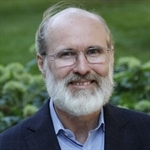Speaker Series: Joachim Savelsberg

Core themes from a recent book on the construction of genocide knowledge will be addressed. The book presents the notion of an epistemic circle, addressing ways in whch victims and perpetrators generate conflicting knowledge repertoires about genocide. Using a sociology of knowledge approach, the book answers this question for the Armenian genocide committed in the context of World War I. Focusing on Armenians and Turks, it examines strategies of silencing, denial, and acknowledgment in everyday interaction, public rituals, law, and politics. Empirical materials include interviews, ethnographic accounts, documents, and eyewitness testimony. The book illuminates the social processes that drive dueling versions of history. The presentation speaks to the sedimentation of knowledge repertoires, and it addresses counterproductive consequences of denial in an age of human rights hegemony, with implications for populist disinformation campaigns against overwhelming evidence.
Potential reading materials: The book is available as a paperback and as an open access online publication, which can be accessed here. The brief introduction provides an overview; Chapter 8 addresses a court case over “free speech rights” in the US; Chapter 9 addresses counterproductive consequences of denial in an age of human rights.
_____________________________________________________________________________________
Joachim Savelsberg: “Born, raised, and educated in Germany, I moved—after year-long fellowships at the Johns Hopkins and Harvard universities – to the United States to take a position at the University of Minnesota in 1989. Here I am a professor of sociology and, by courtesy, law as well as the Arsham and Charlotte Ohanessian Chair.
Much of my recent work addresses representations and memories of mass violence, especially through legal intervention. Simultaneously, I continue to contribute to themes that were previously at the center of my agenda. They include institutional conditions of knowledge about crime and punishment in international and temporal comparison and associated dynamics of criminal punishment; comparative imprisonment rates; the sociology of criminology; sentencing guidelines; and the criminalization of white-collar offenses.
Along the way, I served, with my colleague Timothy Johnson, as editor of the Law & Society Review, and as the elected chair of the Sections for the Sociology of Law and the Sociology of Human Rights of the American Sociological Association and of the Theory Division of the Society for the Study of Social Problems.
I kept my contacts to Europe alive and expanded them into Africa, aided by fellowships or visiting professorships at the Humboldt University (Berlin), the Ludwig Maximilian University (Munich), the Karl Franzens University (Graz), the Rockefeller Foundation at Bellagio, the Käte-Hamburger Center for Advanced Study “Law as Culture” (Bonn), the Stellenbosch Institute for Advanced Study (South Africa), and the Paris Institute for Advanced Study. My publications have appeared in English, German, French, Portuguese, Italian, Spanish, and Chinese. Movements across continents have inspired insights into globalization and cross-national comparison.”

